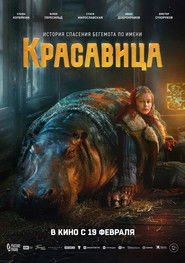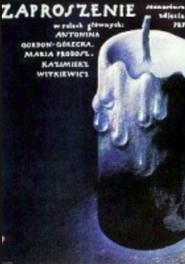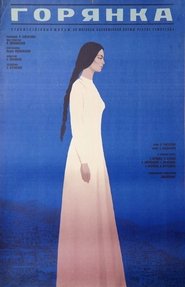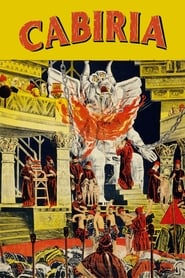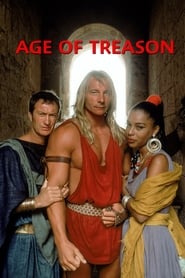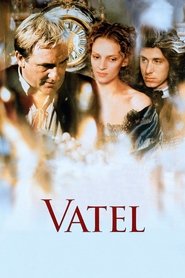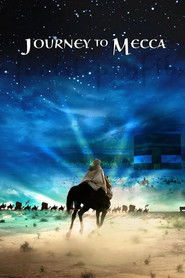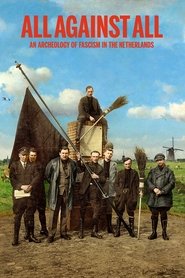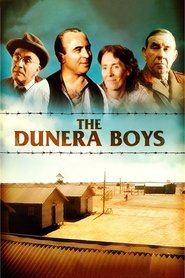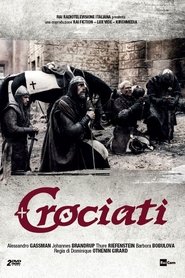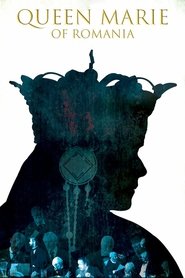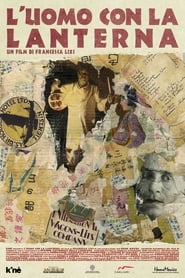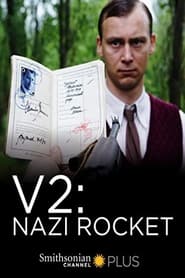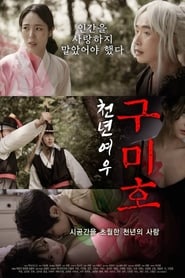Popular History Movies on Pantaflix - Page 327
-
Красавица
2026
Красавица
2026
December 1941. Leningrad. The story centers on the main character, who, together with other employees, saves zoo animals from shelling. The people themselves are on the brink of life and death, but they do not abandon the hippopotamus named Krasavitsa. -
Invitation
1986
Invitation
1986
star 5The main character is Anna, an outstanding pediatrician. She survived the harsh years of war in a concentration camp and cannot accept the behavior of her daughter Natalia, who uses her connections and cares only about material goods. Anna is reminded of 1939, when Piotr, who had been missing for forty-five years, arrives in Poland. Together, they visit places that are important to them: Auschwitz, Sachsenhausen, and Ravensbruck. -
The Mountain Woman
1975
The Mountain Woman
1975
After Asiat refuses to marry a much older rich man to whom she was betrothed since childhood, her father kicks her out of the house. She leaves for Makhachkala to study and falls in love with the young Yusup. -
Cabiria
1914
Cabiria
1914
star 7.2Young Cabiria is kidnapped by pirates and sold as a slave in Carthage. Just as she's to be sacrificed to Moloch, Cabiria is rescued by Fulvius Axilla, a good-hearted Roman spy, and his powerful slave, Maciste. The trio are broken up as Cabiria is entrusted to a woman of noble birth. With Cabiria's fate unknown, Maciste punished for his heroism, and Fulvius sent away to fight for Rome, is there any hope of our heroes reuniting? -
Age of Treason
1993
Age of Treason
1993
star 5.8It's 69AD in Rome and streetwise hustler Marcus Didius Falco gets caught up in the death of the son of a man close to the new emperor, Vespasian. Hired by the victim's sister to discover the truth, Falco and his newly acquired slave, the gladiator Justus, uncover plots involving a cult which reaches into the Imperial household. -
Vatel
2000
Vatel
2000
star 6.1In 1671, with war brewing with Holland, a penniless prince invites Louis XIV to three days of festivities at a chateau in Chantilly. The prince wants a commission as a general, so the extravagances are to impress the king. In charge of all is the steward, Vatel, a man of honor, talent, and low birth. The prince is craven in his longing for stature: no task is too menial or dishonorable for him to give Vatel. While Vatel tries to sustain dignity, he finds himself attracted to Anne de Montausier, the king's newest mistress. In Vatel, she finds someone who's authentic, living out his principles within the casual cruelties of court politics. Can the two of them escape unscathed? -
Journey to Mecca
2009
Journey to Mecca
2009
star 6.4The 20 year old Muslim religious law student Ibn Battuta (1304–1368), whose full name was Abu Abdullah Muhammed Ibn Abdullah Al Lawati Al Tanji Ibn Battuta, set out from Tangier, a city in northern Morocco, in 1325, on a pilgrimage to Mecca, some 3,000 miles (over 4,800 km) to the East. The journey took him 18 months to complete and along the way he met with misfortune and adversity, including attack by bandits, rescue by Bedouins, fierce sand storms and dehydration. -
All Against All
2019
All Against All
2019
star 7This richly illustrated historical documentary investigates the mechanism of nationalist feelings that radicalise. It shows how fascism was on the rise even a decade before the founding of the NSB, due to a number of anti-democratic initiatives led by a millionaire with a predilection for one-legged women, a market vendor, a cleric, and an artist. Historians, writers and collectors of fascist curios reveal how an initially marginal and fragmented movement grew into a radical populist party. -
The Dunera Boys
1985
The Dunera Boys
1985
star 6At the start of WWII the British Government decided to arrest all Germans in the UK no matter how long they had been there. Among those arrested were many Jewish refugees and many who were fully assimilated. This film records the story of a group who were sent to a POW camp in Australia aboard the Dunera. -
The Crusaders
2001
The Crusaders
2001
star 3.9Towards the end of the eleventh century, Pope Urban II announces a crusade against the Saracens, who have occupied the holy city of Jerusalem. Three young friends Richard, Peter and Andrew set off to join the crusading army. -
Queen Marie of Romania
2019
star 7Devastated by the First World War and plunged into political controversy, Romania's every hope accompanies its Queen on her mission to Paris, to lobby for its great unification's international recognition at the 1919 Peace Talks. -
Sholem Aleichem: Laughing In The Darkness
2012
star 6.2A riveting portrait of the great writer whose stories became the basis of the Broadway musical Fiddler on the Roof. Sholem Aleichem: Laughing in the Darkness tells the tale of the rebellious genius who created an entirely new literature. Plumbing the depths of a Jewish world locked in crisis and on the cusp of profound change, he captured that world with brilliant humor. Sholem Aleichem was not just a witness to the creation of a new modern Jewish identity, but one of the very men who forged it. -
The Man with the Lantern
2018
To discover the truth behind the mysterious objects her uncle brought back from the Far East during her childhood, filmmaker Francesca Lixi embarks on a journey to those places through archival footage. -
心中观世音
2008
心中观世音
2008
-
Hitlers Angriff aus dem All - Das Geheimnis der V2
2016
The Nazis knew it was their last chance. The British knew it was the deadliest threat they'd ever face. And the Americans knew it could fall into the wrong hands. The V2 rocket quickly became Hitler's greatest deadly weapon and beacon of hope to turn the course of World War II in his favor. Watch Nazi Germany's desperate attempt at victory as the Allies race to stop them and see how the V2 miraculously went from deadly weapon to amazing feat of space technology. -
Die Pilgerin
2014
Die Pilgerin
2014
star 5.6In the 14th century, a young merchant's daughter from southern Germany sets off on the adventurous Way of St. James to faraway Santiago de Compostela to fulfill her father's last wishes and bring his heart there. Disguised as a man, the pilgrim is hunted by pursuers set on her by her conniving brother. -
Rebel Soldier
1958
Rebel Soldier
1958
A Roman military commander falls in love with Ranjana, a devout Christian. The Roman Empire's atrocities toward the Christians prompt the commander to become a rebel soldier to protect the Christian community from the Roman Emperor. -
Thousand Year Gumiho
2020
Thousand Year Gumiho
2020
star 3The leader gumiho, who has lived for more than 1,000 years, is captivated by a human woman, Gu Ho, who met Jeong Yeon, who has been reborn in the present. The 500-year-old Mi Ho, who is good at transforming herself into a different creature, advises Gu Ho not to love people after experiencing heartbreaking love in the Joseon Dynasty. Su Ho, a 25-year-old boy, falls in love with people, gets hurt, and is filled with hatred for humans. The Love Story of Gumiho, which connects Japanese colonial era and Joseon Dynasty in the present. -
Egypt's Lost Queens
2014
Egypt's Lost Queens
2014
star 6.2Professor Joann Fletcher explores what it was like to be a woman of power in ancient Egypt. Through a wealth of spectacular buildings, personal artefacts and amazing tombs, Joann brings to life four of ancient Egypt's most powerful female rulers and discovers the remarkable influence wielded by women, whose power and freedom was unique in the ancient world. Throughout Egypt's history, women held the title of pharaoh no fewer than 15 times, and many other women played key roles in running the state and shaping every aspect of life. Joann Fletcher puts these influential women back at the heart of our understanding, revealing the other half of ancient Egypt.
 Netflix
Netflix
 Amazon Prime Video
Amazon Prime Video
 Apple iTunes
Apple iTunes
 Apple TV Plus
Apple TV Plus
 Disney Plus
Disney Plus
 Google Play Movies
Google Play Movies
 Paramount Plus
Paramount Plus
 Hulu
Hulu
 HBO Max
HBO Max
 YouTube
YouTube
 fuboTV
fuboTV
 Peacock
Peacock
 Peacock Premium
Peacock Premium
 Amazon Video
Amazon Video
 The Roku Channel
The Roku Channel
 AMC+
AMC+
 Kocowa
Kocowa
 Hoopla
Hoopla
 The CW
The CW
 Vudu
Vudu
 Starz
Starz
 Showtime
Showtime
 PBS
PBS
 Pantaflix
Pantaflix
 FXNow
FXNow
 Tubi TV
Tubi TV
 Kanopy
Kanopy
 Comedy Central
Comedy Central
 Crunchyroll
Crunchyroll
 Microsoft Store
Microsoft Store
 Redbox
Redbox
 Sun Nxt
Sun Nxt
 ABC
ABC
 DIRECTV
DIRECTV
 Crackle
Crackle
 Fandor
Fandor
 Plex
Plex
